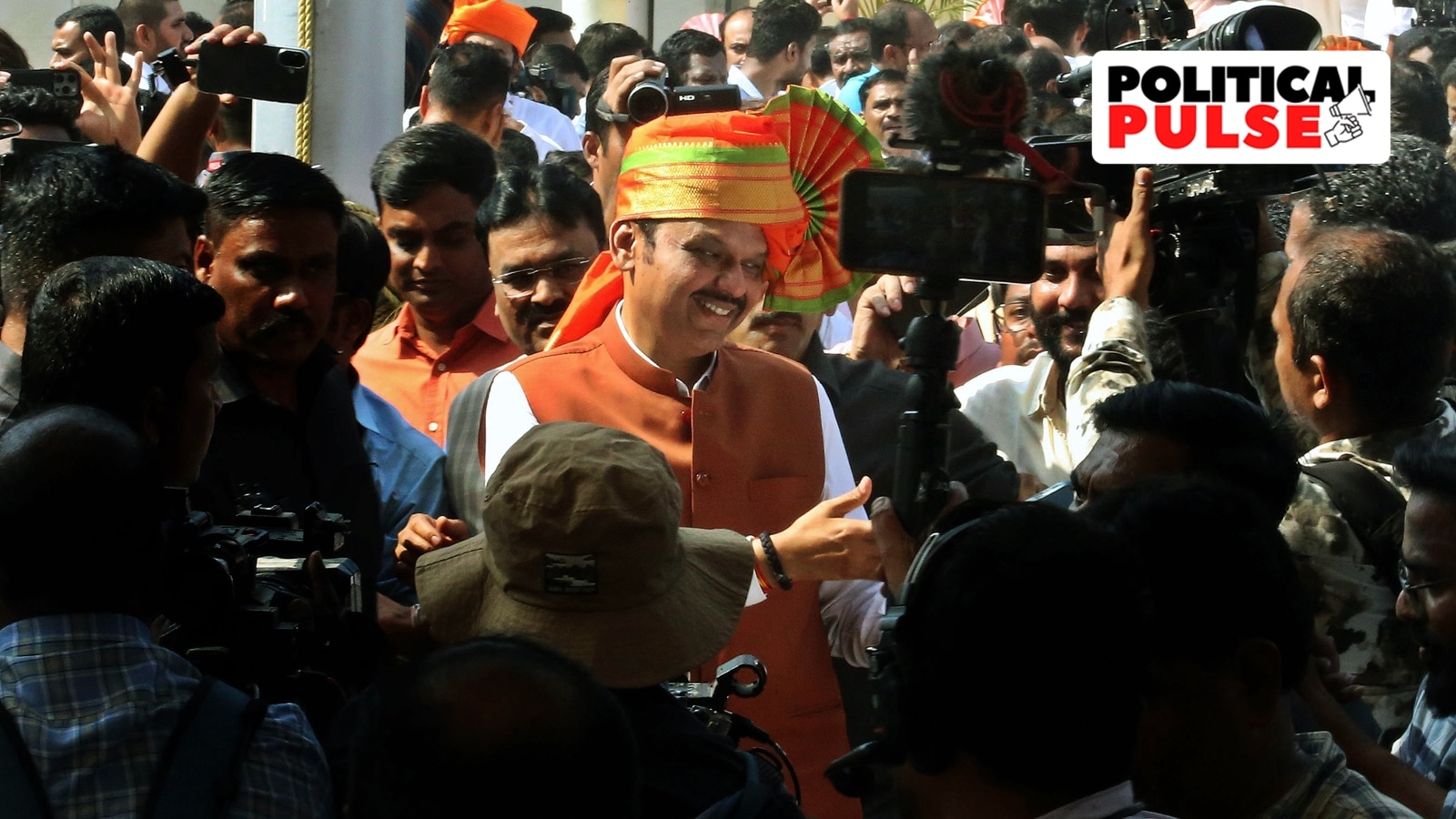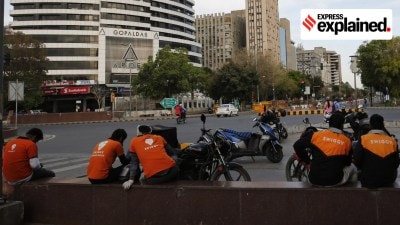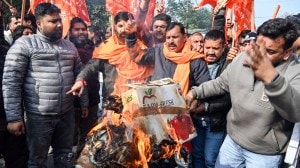Why Devendra Fadnavis is likely to face a testing time despite huge mandate
Devendra Fadnavis sworn in as CM: Be it social, political, or economic, the challenges that the new Maharashtra CM is facing are quite significant.
 While a weak Opposition is good news for the new CM, managing intra-coalition conflict could potentially pose a problem. (Express Photo by Ganesh Shirsekar)
While a weak Opposition is good news for the new CM, managing intra-coalition conflict could potentially pose a problem. (Express Photo by Ganesh Shirsekar)Devendra Fadnavis sworn in as CM: Uneasy lies the head that wears a crown. As Devendra Fadnavis looks to get on with his third term as Maharashtra Chief Minister, there will be plenty of challenges confronting his administration on almost all fronts — social, economic, and political.
The economic problems facing the new Mahayuti government will be immense as Fadnavis is forced to navigate the challenge of balancing the financial considerations of a debt-ridden state with the populist measures that the ruling alliance promised in the run-up to the elections.
According to a report of the Comptroller and Auditor General of India (CAG) from earlier this year, the state has to repay Rs 2.75 lakh crore of debt in seven years, making financial disbursement for welfare schemes a tough task. Of the 9.7 crore electors in Maharashtra, 4.7 crore are women and the Mahayuti government aims to cover 2.5 crore of them under the Majhi Ladki Bahin Yojana, which leaders of the ruling alliance have credited for a big contribution to their victory.
With an increase in the monthly payouts from Rs 1,500 to Rs 2,100, the state government will have to spend Rs 63,000 crore annually to cover them. It will be a 40% increase compared to the current estimated amount of Rs 45,000 crore intended to cover 2.5 crore women (at the current monthly assistance of Rs 1,500).
In addition, there is the Chief Minister Youth Work Training Scheme (Skill Development Department) for which the annual allocation is Rs 10,000 crore; the Mukhya Mantri Annapurna Yojana (Department of Food and Civil Supplies) under which three gas cylinders are allotted to households, expected to benefit nearly 52 lakh families; the Girls Free Higher Education Scheme (Department of Higher and Technical Education) for which Rs 2,000 crore is annually allocated; and the Chief Minister Baliraja Power Concession Scheme (Energy Department) which is estimated to cost Rs 14,716 crore annually and benefit nearly 44 lakh farmers.
Then there are political considerations Fadnavis has to make. While a weak Opposition is good news for the new CM, managing intra-coalition conflict could potentially pose a problem. The difficulty in getting his predecessor Eknath Shinde to accept the Deputy CM post showed that he would not be a “yes man” and the Shiv Sena would bargain hard to have its way in the government.
The next big challenge for the ruling alliance will be the local body elections, including the all-too-important Brihanmumbai Municipal Corporation (BMC) election. The richest civic body in India with a budget of Rs 85000 crore, the BMC has been in the control of the Uddhav Thackeray-led Shiv Sena (UBT) for almost three decades. Taking control of the BMC and dealing Uddhav’s party a body blow will be on the top of the political agenda of both Fadnavis and Shinde.
“A year ago, we set a target of 134-plus out of 227 seats in BMC. Now, our target is 200-plus in BMC,” said a senior BJP functionary, adding that it would be a battle to “avenge Thackeray’s 2019 betrayal”.
Fadnavis also has to keep the peace so that the caste cauldron does not boil over. The BJP strategically ensured that consolidating the Other Backward Classes (OBCs), mostly the non-Kunbi groups, would help it stave off Maratha consolidation for the Opposition. While the latter did not happen unlike in the Lok Sabha elections, the BJP’s success in getting back the OBC votes, some of which it lost in the parliamentary polls, propelled it to a landslide victory.
After the results, the wind appears to have been taken out of Maratha quota activist Manoj Jarange-Patil’s quota agitation and the situation is unlikely to cause the government any immediate problems. But Fadnavis has to find a lasting solution to the problem to ensure the situation does not continue to simmer and come back to cause problems down the line.
- 01
- 02
- 03
- 04
- 05































